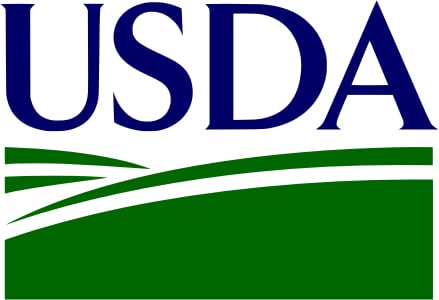As these programs (funded by a 'check-off' or levy on producers of a certain size) are overseen by the federal government (USDA) but are not funded by taxpayers, says the bill, “the Committee urges USDA to recognize that such boards are not subject to the provisions of 5 U.S.C. Section 552 [the FOIA].”
The bill - which you can read here - has passed the committee stage, and will be heading to the floor of the House of Representatives for a full vote in due course (no date has been set as yet).
As those following the fortunes of plant-based food maker Hampton Creek will know, it was emails uncovered by FOIA requests made last fall which indicated that the AEB had engaged in a concerted attempt to undermine Hampton Creek via actions that went beyond the AEB's official remit (which is “to increase demand for eggs and egg products through research, education and promotion”).
Among other things, the emails suggested the AEB paid someone to call Whole Foods to attempt to block the distribution of Hampton Creek's flagship brand Just Mayo (egg-free mayo) and urged the FDA to look into Hampton Creek's labels in the wake of a Unilever lawsuit alleging it violated food labeling rules – allegations the AEB strongly denies (click HERE to see the AEB's response to the allegations).
If the AEB and other research and promotion programs currently overseen by USDA had been exempted from the FOIA, Hampton Creek CEO Josh Tetrick told FoodNavigator-USA this morning, these issues would never have come to light.
“You’d really have to take off your reason and logic hat to believe that the insertion [of this paragraph] is not explicitly connected to the American Egg Board’s experiences over the past year.”

Research & Promotion programs, authorized by Congress, are requested, funded, and driven by industry, and overseen by the USDA's agricultural marketing service (AMS).
The programs establish a framework to pool resources to develop new markets, strengthen existing markets, and conduct important research and promotion activities. AMS provides oversight, ensuring fiscal responsibility, program efficiency, and fair treatment of participating stakeholders.
AMS oversees more than 20 research and promotion boards that empower farmers, ranchers, and agricultural businesses including the American Egg Board, the Fluid Milk Processors Promotion Program, and the National Peanut Board.
Source: USDA
If these programs don’t want to have the benefits of the USDA oversight then they should separate themselves from USDA entirely
But what about those who would argue that taxpayer money should not be spent on requiring USDA officials to process FOIA requests about industry-backed programs?
And why should employees of the AEB and other check-off schemes - who are not employed by the federal government - have to release documents to the media or other interested parties?
Said Tetrick: “You can’t have it both ways. If these programs don’t want to have the benefits of the USDA oversight then they should separate themselves from USDA entirely and then we wouldn't be having this conversation. But if they do, there has to be transparency."
And this is for the benefit of the farmers mandated to contribute to the check-off programs as well as companies such as Hampton Creek, he argued, noting that farmers expect their money to be spent exclusively on increasing demand for their products through research, education and promotion, not alleged attempts to thwart the progress of companies in rival industries.
“What many people may not realize is that members of these schemes are mandated to pay their levies and that mandated element explicitly flows from the connection to the USDA," said Tetrick.
"The commodity research and promotion boards that the agency oversees [eg. American Egg Board, Cattlemen's Beef Board, American Lamb Board etc] are not agencies of the federal government, nor are research and promotion programs funded with federal funds. The funding used to operate and carry out the activities of the various research and promotion programs is provided by producers and industry stakeholders, and employees of the boards are not federal employees. Therefore, the committee urges USDA to recognize that such boards are not subject to the provisions of 5 U.S.C. Section 552 [the Freedom of Information Act]."
Paragraph on page 34 of the Agriculture, Rural Development, Food and Drug Administration, and Related Agencies Appropriations Bill, 2017
Tina May: Check off programs do a lot of good
VP policy Tina May added: “We just want to make sure that attention is brought to this; check off programs do a lot of good when run correctly and we want to make sure that government is transparent and accountable so farmer dollars that go into these programs are spent well.”
According to a report in Capital Press, the wording in the bill relating to the research and promotion boards was included in a letter sent to the leadership of the House Subcommittee on Agriculture, Rural Development Food and Drug Administration and Related Agencies on April 11 from 14 commodity organizations on behalf of their related checkoff fee-funded boards, which are prohibited from lobbying.
Organizations that signed the letter - according to Capital Press - included United Egg Producers and the National Potato Council, with NPC president John Keeling observing: “I think the idea is we don’t want to see these producer dollars wasted by pulling paperwork."
The American Egg Board told FoodNavigator-USA: "The American Egg Board had no role or involvement in the request by trade organizations for an exemption to the Freedom of Information Act. We have no opinion about their request or the subcommittee’s response to it.”

"This is yet another attempt by the House of Representatives to protect corporate food interests, no matter how undemocratic the results. The Freedom of Information Act was designed to hold government accountable. Commodity groups are happy to have their checkoff programs run by USDA when convenient, but now want to insist that that they are not government programs and, therefore, not subject to FOIA. It’s not fair for commodity groups to have it both ways. Congress is wrong to back up a move so obviously contrary to the public interest."
Dr Marion Nestle, Paulette Goddard Professor of Nutrition, Food Studies, and Public Health at New York University
